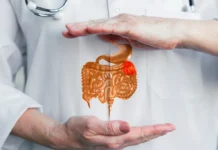High blood pressure, or hypertension, is a full-size health challenge with the ability to inflict harm on your blood vessels, heart, kidneys, and other critical organs. This common situation affects millions globally, necessitating consciousness of its implications and sparking action when necessary.
What is high blood pressure?
Blood strain measures the force of blood towards artery partitions at some point in the coronary heart’s pumping cycle, expressed as systolic (first number) and diastolic (2nd range) readings. Normal blood pressure is below 120/eighty mmHg. High blood stress is described as analyzing consistently at or above 130/eighty mmHg.
When to Seek Emergency Care:
While high blood pressure frequently occurs without noticeable signs, a sudden and intense boom can lead to a hypertensive crisis or traumatic immediate interest.
Symptoms of a Hypertensive Crisis:
Indications of a hypertensive crisis include:
- Severe headache
- Chest ache
- Shortness of breath
- Blurred vision
- Nausea and vomiting
- Confusion
- Seizures
Emergency Hypertensive Crisis:
Experiencing these symptoms calls for urgent medical attention. Call 911 or head to the nearest emergency room.
How to Lower Your Blood Pressure
Several lifestyle modifications can assist in lowering blood pressure, including:
- Maintain a healthy weight-loss program
- Engage in ordinary exercise
- Manage a wholesome weight
- Limit alcohol intake
- Quit smoking
If lifestyle adjustments prove insufficient, a remedy can be prescribed.
Demystifying Your Blood Pressure Readings

When your blood pressure (BP) is measured, you’re given two numbers, such as 120/80. This fraction represents two distinct events occurring in your heart.
The top number, systolic pressure (120/x), measures the peak blood pressure in your arteries when your heart muscle contracts. In contrast, the bottom number, diastolic pressure (x/80), measures the lowest blood pressure in your arteries when your heart relaxes between beats. Both numbers play a crucial role in determining whether your BP is normal or if you have hypertension.
Risk Factors for Hypertension
Several factors can elevate your risk of developing hypertension:
- Family History: Having a close blood relative (parents or siblings) with high blood pressure (HBP) increases your likelihood of developing it yourself.
- Age: The risk of HBP diagnosis rises with age.
- Gender: Men are more prone to HBP before age 65. Women tend to develop hypertension after 65.
- Race: Over 40% of African Americans have high blood pressure. HBP often appears earlier and is more severe in these individuals.
- Diabetes: More than 75% of people with diabetes also have hypertension.
- Lifestyle: Lifestyle choices like diet, exercise, weight management, and alcohol and tobacco consumption can impact your HBP risk. Unlike other factors, these are modifiable.
Responding to a Hypertensive Crisis
If you suspect a hypertensive crisis, follow these steps:
- Check Your Blood Pressure: Measure your BP.
- Retake BP After 5 Minutes: If your BP is 180/120 or higher and you have no severe symptoms, wait 5 minutes and retake it. Relax, as anxiety can elevate BP readings.
- Seek Medical Attention: If the repeat BP measurement remains high, seek medical attention. Contact your primary care provider for guidance on medication adjustments or follow-up. If it is unreachable, go to the emergency room.
- Immediate Emergency Care: If your BP is 180/120 or higher with warning symptoms (chest or upper back pain, shortness of breath, severe headache, dizziness, numbness or weakness, vision loss, or speech difficulties), proceed immediately to the emergency room for evaluation.
What are the long-term effects of high blood pressure if left uncontrolled?
High blood pressure, or hypertension, is a prevalent condition that, when left untreated, can lead to severe and lasting consequences. Consistent elevation of blood pressure can result in damage to arteries and organs, contributing to various complications.
- Heart attack and stroke: The risk of a heart attack or stroke significantly increases. High blood pressure thickens and narrows the arteries, limiting blood flow to the heart and brain. This vascular damage raises the likelihood of blood clots, potentially causing a heart attack or stroke.
- Heart Failure: Weakening of the heart muscle occurs, impeding effective blood pumping. Heart failure ensues, characterized by insufficient blood circulation to meet the body’s demands.
- Kidney Damage: Kidneys, responsible for filtering blood waste, suffer damage. Chronic kidney failure may result, leading to inadequate removal of toxins from the blood.
- Eye Damage: Blood vessel damage in the eyes can lead to vision problems, including blindness.
- Dementia: Brain blood vessel damage increases the risk of reduced blood flow and subsequent dementia.
Additional complications caused by high blood pressure
Beyond these critical complications, high blood pressure can contribute to additional health issues:
- Aneurysm: Arterial walls may weaken, elevating the risk of an aneurysm—a bulge that may rupture.
- Peripheral Artery Disease: Narrowing of the arteries supplying blood to the legs and feet becomes more likely.
- Sexual Dysfunction: Blood vessel damage in the penis can result in difficulties in achieving or maintaining an erection.
The management of high blood pressure is essential. Lifestyle modifications, including a healthy diet, regular exercise, and weight maintenance, are crucial steps. In some instances, medication may be necessary. Taking proactive measures to control blood pressure not only reduces the risk of severe complications but also enhances overall health.
When is high blood pressure a medical emergency?
High blood pressure, also known as hypertension, can sometimes reach critical levels, necessitating immediate medical attention. This situation, termed a hypertensive crisis, occurs when blood pressure spikes rapidly and severely.
Seek emergency medical care without delay if your blood pressure reading reaches 180/120 or higher and you experience any of the following symptoms, which may indicate organ damage:
- Chest pain
- Shortness of breath
- Numbness or weakness in any part of the body
- Changes in vision
- Difficulty speaking
- Severe headache
When is high blood pressure a concern during pregnancy?
Pregnant women should consult their healthcare provider if their blood pressure reaches 140/90 or higher. This is considered high blood pressure for pregnant women, even though it is within the normal range for non-pregnant adults.
High blood pressure, or hypertension, demands vigilant observation during pregnancy and necessitates prompt attention in children. Understanding associated symptoms, recognizing emergencies, and knowing contributing factors are crucial for proactive management.
Symptoms of High Blood Pressure in Pregnancy:
Pregnant individuals should be attentive to accompanying symptoms, including:
- Upper abdominal pain
- Vision changes
- Swelling, especially in the hands and feet
- Headaches
High blood pressure as a medical emergency in children:
Defining normal and abnormal blood pressure in children relies on age, weight, sex, and height factors. A reading of 180/120, deemed a medical emergency in adults, signals a hypertensive crisis in children.
Contributing Factors to High Blood Pressure:
Several factors elevate the risk of high blood pressure, such as:
- Inadequate physical activity
- Obesity
- Underlying medical conditions like diabetes
Questions in the Emergency Room:
Upon entering the emergency room, expect a thorough interview to collect vital information. Anticipate answering the following questions and any additional queries your healthcare provider may pose:
- What medications are you presently taking?
- Have you missed any doses of your blood pressure medication?
- What symptoms are you experiencing?
- How long have these symptoms persisted?
If you are unable to check your blood pressure but suspect it may be high, do not hesitate to call 911 or seek immediate medical attention at the nearest emergency room.
Conclusion:
While excessive blood pressure is an extreme circumstance, proactive control is viable. Adopting the hints mentioned can be a useful resource for blood strain reduction and reducing complications.
Additional Tips:
- Regularly monitor blood stress at home or for the duration of medical doctor visits.
- Maintain a file of blood stress readings.
- Adhere to the prescribed blood pressure remedy.
- Attend routine checkups along with your physician.
Frequently Asked Questions:
Q: What differentiates urgent and emergency hypertensive crises?
A pressing hypertensive disaster has very excessive blood stress without instant organ damage symptoms. An emergency hypertensive crisis includes excessive blood stress and immediate organ damage signs and symptoms.
Q: What complications may additionally arise from out-of-control high blood pressure?
Uncontrolled excessive blood strain can cause excessive headaches, together with stroke, heart attack, kidney failure, and blindness.
Q: How can high blood pressure be averted?
Preventive measures consist of keeping a healthy weight, adopting a nutritious weight loss program, regular exercise, and reducing alcohol intake.
Q: What are the signs and symptoms of excessively high blood pressure?
A: High blood pressure typically causes no symptoms, but a hypertensive crisis may also cause severe headaches, chest pain, shortness of breath, blurred vision, nausea, vomiting, confusion, and seizures.
Q: What do I need to do if I suspect a hypertensive disaster?
If a hypertensive crisis is suspected, you should look for instant medical attention by calling 911 or traveling to the nearest emergency room.














